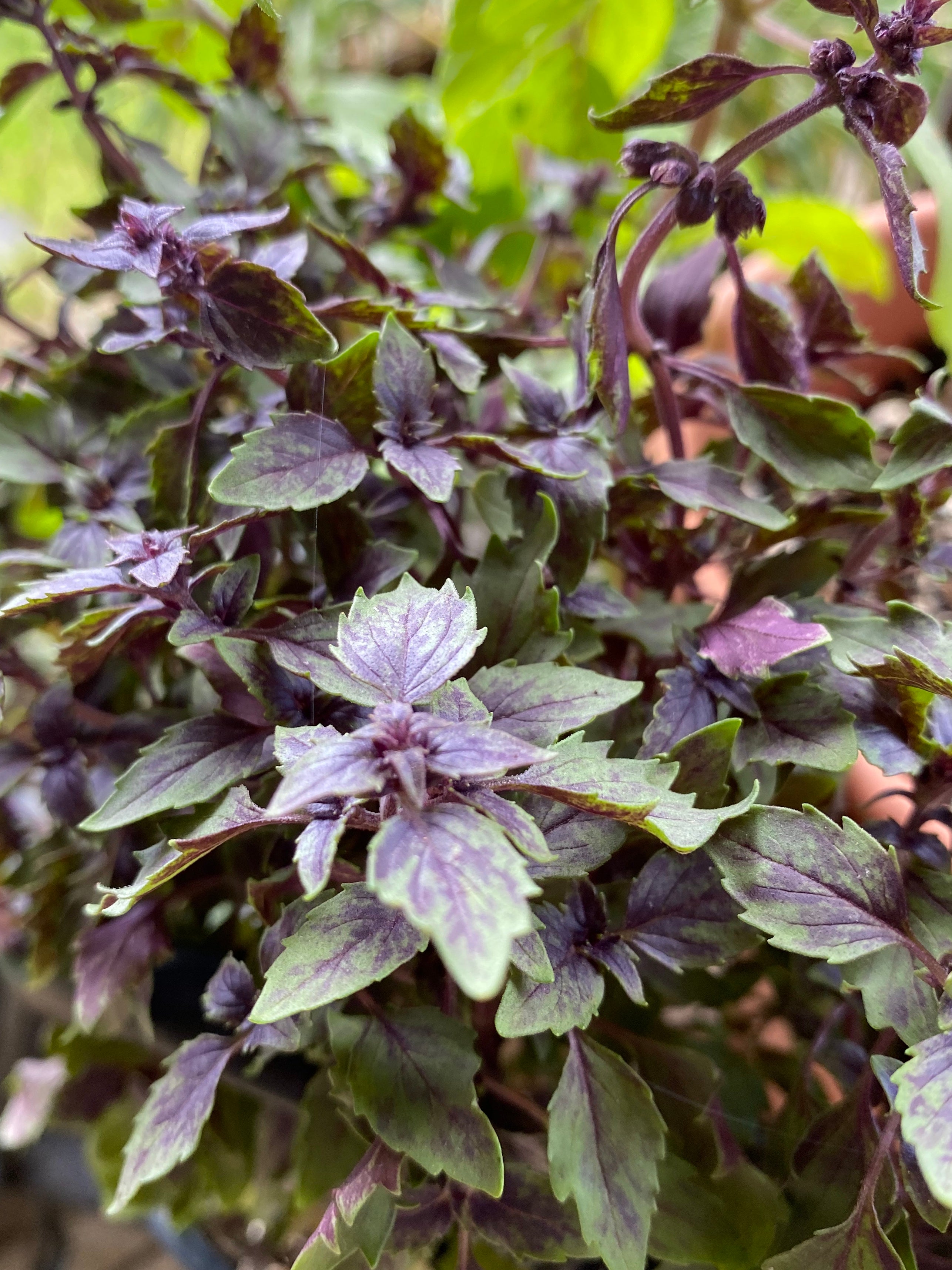African Blue Basil Care: How To Grow African Basil Plants


Sign up for the Gardening Know How newsletter today and receive a free copy of our e-book "How to Grow Delicious Tomatoes".
You are now subscribed
Your newsletter sign-up was successful
Also known as clove basil and African basil, the African blue basil plant (Ocimum gratissimum) is a perennial shrub grown for a hedge or for medicinal and culinary uses. Traditionally, and commercially today, African basil is grown for its oils, which are used in flavorings and insect repellant.
About African Basil Plants
Native to Africa and South Asia, African blue basil plants have long been grown for the medicinal and culinary uses of the leaves. It is related to the common basil that flavors so many dishes but grows as a shrub rather than a leafy herb.
The shrub grows up to 6 feet (2 m.) tall and looks a little weedy. You can trim and shape it to look tidier though. The right growing environment for African basil is subtropical and tropical with some humidity. It will not survive a cold winter and too much moisture affects the amount and quality of oil the leaves produce.
African Basil Uses
For a workhorse of a plant, this is a good choice. It has both edible and medicinal uses. As an edible herb, the leaves are used to flavor dishes or cooked like a green. Different varieties vary in aroma and flavor: thyme, lemon thyme, and clove. The leaves can also be used to make tea and the oils extracted to make clove or thyme oil.
In its native Africa, the plant is also well-known for several medicinal uses, including as an insect repellant. It is cultivated for oil production and exported and used to make bug sprays. Some of the other potential medicinal uses include treating:
- Fever
- Parasites
- Bacterial infections
- Colds
- Headaches
- Gastrointestinal problems
How to Grow African Basil
If you have the right climate, or are willing to overwinter your plant inside, African basil is nice to grow for its fragrance and edible leaves. African blue basil care requires the best conditions; full sun, loamy soil that is rich in nutrients and well-drained, and moderate humidity and soil moisture.
This plant can become invasive and spread rapidly in disturbed areas. Take care if growing outside in a region where the conditions are right for it to thrive.
Sign up for the Gardening Know How newsletter today and receive a free copy of our e-book "How to Grow Delicious Tomatoes".

Mary Ellen Ellis has been gardening for over 20 years. With degrees in Chemistry and Biology, Mary Ellen's specialties are flowers, native plants, and herbs.